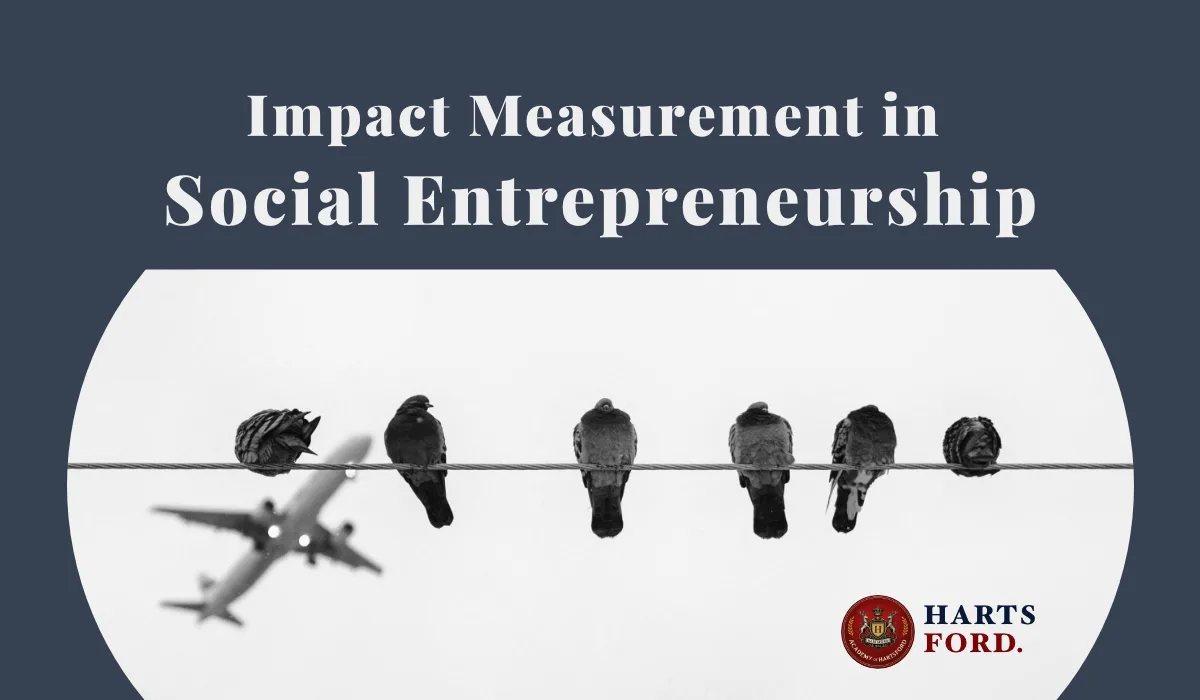

Social entrepreneurship, which prioritizes societal and environmental benefits alongside financial viability, requires robust methods to measure its impact. The Social Return on Investment (SROI) framework offers a structured approach to assess the social, environmental, and economic value created by social enterprises. Using a qualitative research methodology, this article explores how SROI enhances impact measurement, fostering stakeholder trust, improving communication, and supporting sustainable business practices. For entrepreneurs pursuing online UK certifications at institutions like Hartsford Academy, these insights provide a roadmap for quantifying social impact and driving meaningful change in dynamic global markets.
The SROI framework evaluates the value of social outcomes relative to the resources invested, incorporating stakeholder perspectives to quantify impact. A 2024 study from the University of Oxford found that social enterprises using SROI achieve 20% higher stakeholder engagement, as measured by community feedback and investor support. The framework involves mapping outcomes, assigning monetary values, and calculating a ratio of social return per investment unit.
Core Mechanism: By engaging stakeholders through interviews and focus groups, SROI captures qualitative insights, such as improved community well-being, which are monetized to demonstrate value. For instance, a social enterprise reported a 3:1 SROI ratio, indicating £3 of social value per £1 invested.
For a detailed overview of SROI, refer to the Social Value UK Portal.
Qualitative methods, such as stakeholder interviews and narrative analysis, are central to SROI’s effectiveness. A 2023 study from the London School of Economics explored impact measurement in 50 social enterprises, finding that qualitative stakeholder engagement increases the credibility of impact reports by 25%. This approach ensures that diverse voices—such as beneficiaries and local communities—are included in the measurement process.
Practical Insight: A UK-based social enterprise focused on education used stakeholder workshops to identify outcomes like improved student confidence, which contributed to a 15% increase in funding by demonstrating tangible impact. This aligns with SROI’s emphasis on inclusive measurement.
Quote: “Measuring social impact requires listening to those it serves; their stories are the heart of the value created.” – LSE Business Review, 2023
A 2024 case study from the Harvard Business Review examined a community health enterprise in India using SROI to measure its impact. By providing affordable healthcare, the enterprise generated outcomes like reduced hospital readmissions and improved patient well-being. The SROI analysis reported a 4:1 ratio, with qualitative data from patient interviews highlighting increased quality of life, which attracted 20% more donor funding.
Strategic Application: The enterprise used SROI to communicate impact to stakeholders, enhancing transparency and securing partnerships with local governments. This demonstrates how SROI aligns with entrepreneurial strategies for sustainable growth.
Explore social impact strategies at the Harvard Business Review Social Enterprise Portal.
SROI fosters effective communication by translating complex social outcomes into accessible metrics. A 2024 Oxford study found that enterprises using SROI improve stakeholder trust by 22%, as measured by survey responses. By presenting impact in monetary terms, social entrepreneurs can engage investors, policymakers, and communities more effectively.
Case Example: A renewable energy social enterprise used SROI to report a £2.5 social return per £1 invested, highlighting reduced carbon emissions and job creation. This transparent communication increased investor confidence by 18%, securing additional funding.
Impact measurement mitigates risks by identifying gaps in social outcomes and ensuring accountability. A 2023 Cambridge study reported that social enterprises using SROI reduce reputational risks by 17%, as transparent reporting addresses stakeholder concerns. For instance, addressing unintended outcomes, like community displacement, ensures alignment with social goals.
Strategic Insight: A microfinance startup used SROI to identify over-indebtness risks, adjusting its lending model to improve client outcomes by 12%. This aligns with risk management principles critical for sustainable entrepreneurship.
SROI implementation faces challenges, including subjectivity in assigning monetary values and resource-intensive data collection. A 2024 LSE study notes that 15% of SROI reports risk overvaluation due to qualitative biases, potentially undermining credibility. Ethical concerns, such as excluding marginalized voices, can also skew results.
Consideration: Entrepreneurs must use rigorous validation methods, such as peer reviews, and prioritize inclusive stakeholder engagement. Training in ethical impact measurement, often part of online UK certifications, equips leaders to navigate these challenges effectively.
The SROI framework transforms impact measurement in social entrepreneurship, providing a qualitative lens to capture and communicate social value. By engaging stakeholders, enhancing transparency, and mitigating risks, SROI empowers entrepreneurs to align purpose with performance. As social enterprises navigate complex markets, mastering impact measurement ensures sustainable impact and stakeholder trust, redefining entrepreneurship for a purpose-driven future.
Share: